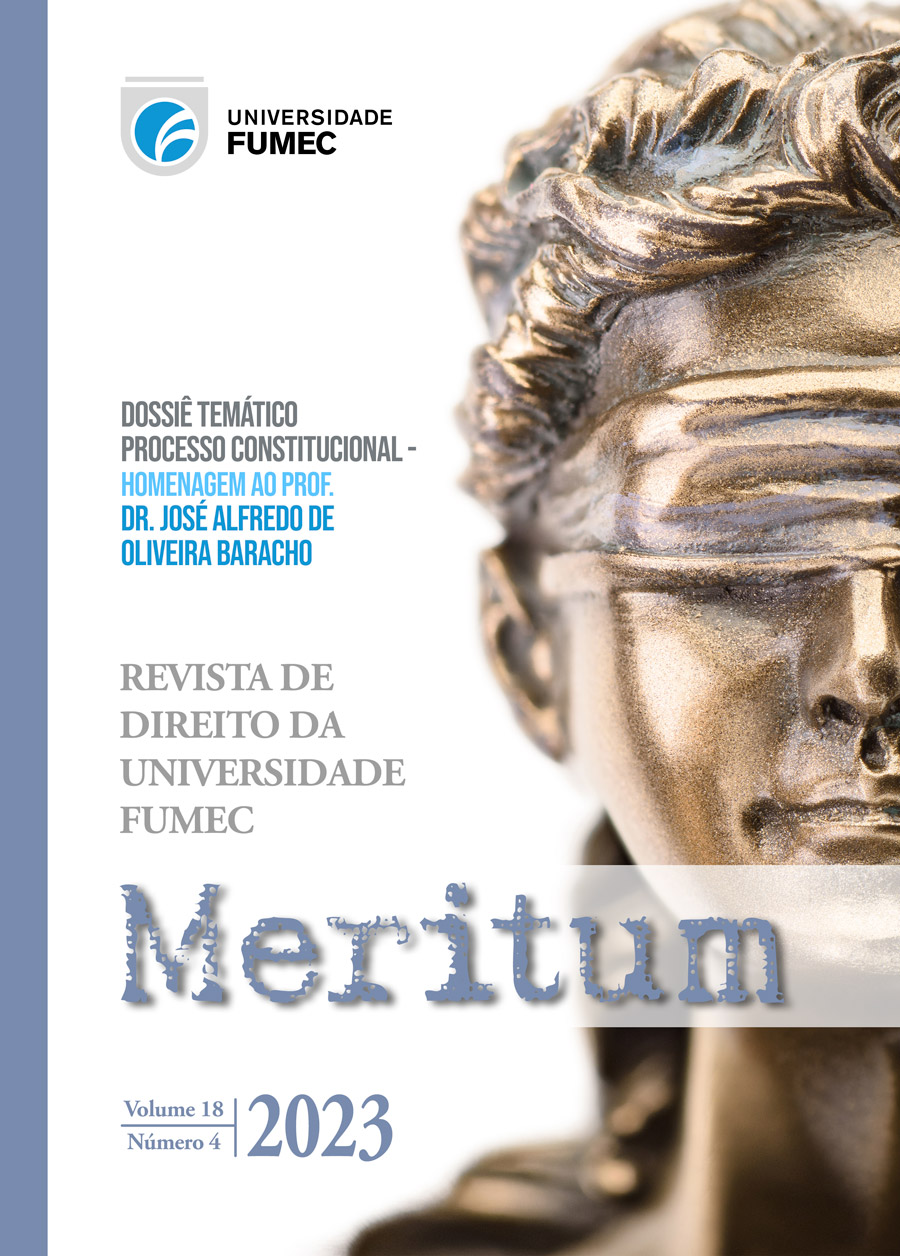O THE CONSTITUTIONAL MODEL OF THE PROCESS AND ITS INTERFACES AND CONNECTIONS WITH THE NEW BRAZILIAN CIVIL PROCEDURE CODE
DOI:
https://doi.org/10.46560/meritum.v18i4.9062Abstract
This legal article demonstrates that one of the positive aspects of the new civil procedure code is the approximation of its procedural rules with the rules of constitutional procedural law provided for in the Brazilian constitution of 1988, presenting the connections and interphases of what has been designated as the constitutional model of the process, which is based on the theoretical and doctrinal teachings of Hector Fix-Zamudio, brought to Brazil in the early 1980s by the constitutionalist José Alfredo de Oliveira Baracho, which contributed a lot to sediment, even after the promulgation of the Charter itself. Magna, these connections and interfaces between procedural law and constitutional law. The management elements of the novel procedural diploma are also studied and criticized, as well as the accentuated aspect of still keeping in the hands of the magistrates the decision-making character of saying the right, when the parties should equally participate in the construction of the final provision, contribution of the true democratic state right.
Downloads
Published
Issue
Section
License
Autores que publicam nesta revista concordam com os seguintes termos:
- Autores mantém os direitos autorais e concedem à revista o direito de primeira publicação, com o trabalho simultaneamente licenciado sob a Licença Creative Commons Attribution que permite o compartilhamento do trabalho com reconhecimento da autoria e publicação inicial nesta revista;
- Autores têm autorização para assumir contratos adicionais separadamente, para distribuição não-exclusiva da versão do trabalho publicada nesta revista (ex.: publicar em repositório institucional ou como capítulo de livro), com reconhecimento de autoria e publicação inicial nesta revista;
- Autores têm permissão e são estimulados a publicar e distribuir seu trabalho online (ex.: em repositórios institucionais ou na sua página pessoal) a qualquer ponto antes ou durante o processo editorial, já que isso pode gerar alterações produtivas, bem como aumentar o impacto e a citação do trabalho publicado (Veja O Efeito do Acesso Livre).






